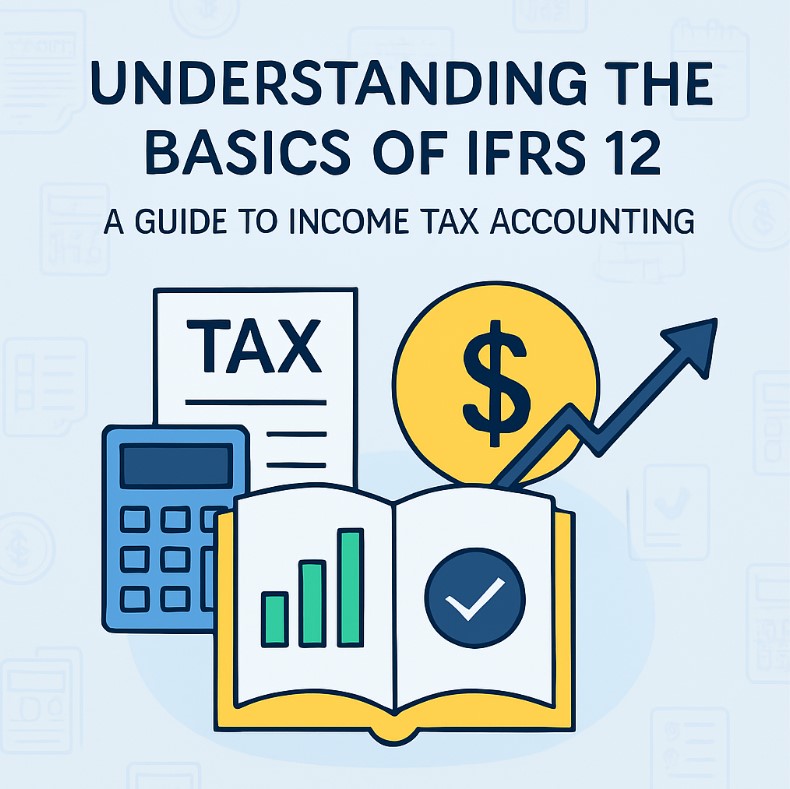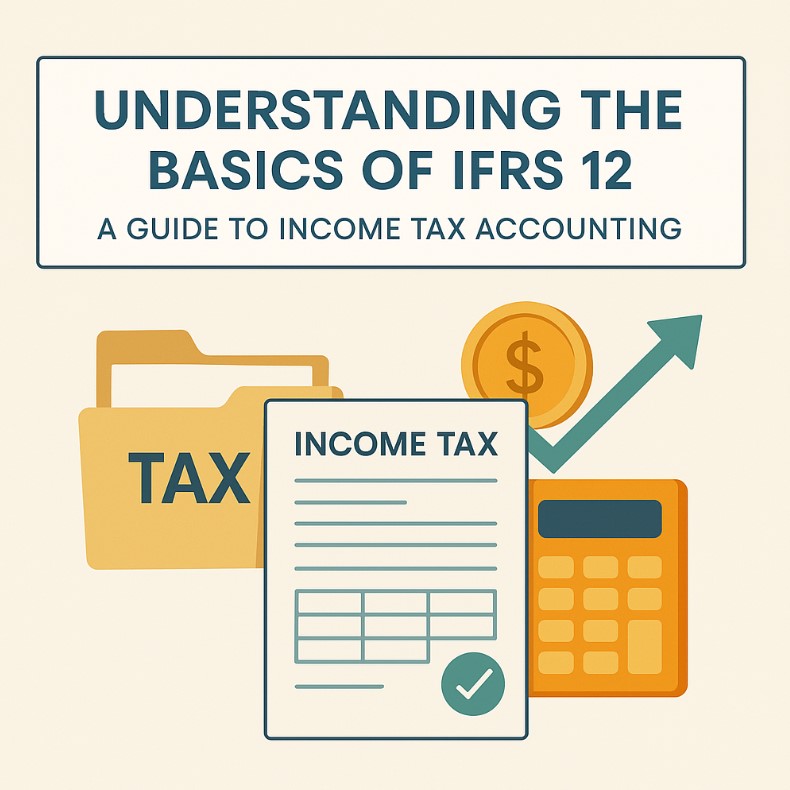
Understanding the Basics of Income Tax Accounting
Wanna save on taxes while ensuring accurate financial reporting? In the realm of financial accounting, understanding the intricacies of income taxes is crucial, and it provides the framework for accurate recognition, measurement, and reporting of income taxes in financial statements.
Mastering IFRS 12 is key to unlocking transparent tax reporting and smart financial strategies. By navigating current and deferred taxes effectively, businesses can enhance compliance and gain a competitive edge in global markets.
What is IFRS 12?
IFRS 12 is the International Financial Reporting Standard for Income Taxes, applicable to entities following the International Financial Reporting Standards (IFRS). It deals with the accounting for current and deferred taxes, the impact of temporary differences between taxable income and accounting income, and how these affect the tax-related disclosures in financial statements.
Key Components of IFRS 12
- Current Tax
Current tax represents the tax liability or refund for the period, determined based on the taxable profit, which is calculated under tax laws. Under IFRS 12, companies must recognize current tax as a liability or asset, depending on whether the company owes taxes or is eligible for a refund.
- Deferred Tax
Deferred tax arises from temporary differences between the carrying amounts of assets and liabilities in the financial statements and their respective tax bases. These differences may be either taxable or deductible in the future. Deferred tax can result in either:
- Deferred Tax Assets: Arising when taxes paid exceed the tax expense for the period or when tax deductions are higher than the accounting expense.
- Deferred Tax Liabilities: Resulting from the reversal of temporary differences where taxable income is greater than accounting income in the future.
- Temporary Differences
Temporary differences are differences between the carrying amounts of assets and liabilities in the balance sheet and their tax bases. These differences will result in taxable or deductible amounts in the future. IFRS 12 mandates recognition of these differences to ensure the correct reflection of the company’s tax position.
- Tax Rates
The measurement of current and deferred tax is based on the tax rates expected to apply in the periods when the assets are realized or the liabilities are settled. This ensures that financial statements reflect the real tax impact, considering any tax rate changes that may occur.

Recognition of Deferred Tax Assets and Liabilities
Under IFRS 12, deferred tax assets should only be recognized if it is probable that future taxable profits will be available to utilize the temporary differences. Deferred tax liabilities are recognized for all taxable temporary differences, unless specific exceptions apply (such as those relating to goodwill).
Why is IFRS 12 Important?
- Enhanced Transparency in Financial Reporting
One of the key goals of IFRS 12 is to provide clearer visibility into an entity’s tax position, ensuring that financial statements reflect the tax impact of all transactions accurately. It helps stakeholders understand the company’s tax obligations and potential tax-saving opportunities.
- Alignment with Global Accounting Standards
By aligning with the international IFRS standards, IFRS 12 ensures that companies are in line with global practices, particularly in terms of accounting for income taxes. This is especially beneficial for companies involved in cross-border transactions and reporting.
- Tax Planning and Corporate Strategy
A deep understanding of IFRS 12 can help businesses strategize their tax planning better, managing their deferred tax assets and liabilities efficiently. Effective planning around temporary differences can help minimize tax expenses and maximize long-term financial benefits.
- Regulatory Compliance
Compliance with tax-related accounting standards is crucial for businesses. Non-compliance with IFRS 12 can lead to regulatory penalties and challenges in the future. Therefore, ensuring accurate reporting of taxes in line with the standard is vital for businesses aiming for financial stability and compliance.
Challenges in Implementing IFRS 12
While IFRS 12 is a comprehensive standard, its implementation comes with challenges:
- Complexity in Calculating Deferred Taxes: Identifying and calculating temporary differences, especially in cross-border transactions, can be intricate and require specialized expertise.
- Changing Tax Laws: With the ever-evolving tax landscape, staying up-to-date with amendments in tax rates and laws is essential to ensure accurate reporting under IFRS 12.
- Maintaining Detailed Documentation: Accurate documentation is critical for demonstrating compliance and ensuring transparent disclosures in financial statements.
Conclusion
In conclusion, IFRS 12 – Income Taxes plays a significant role in determining how income taxes are recognized and reported in financial statements. For businesses aiming for clarity in tax accounting, compliance, and improved strategic tax planning, understanding and implementing this standard correctly is crucial. Whether you are dealing with current taxes or deferred tax assets and liabilities, mastering IFRS 12 ensures accurate financial reporting and helps navigate the complexities of income tax accounting.
How does IFRS 12 impact income tax accounting and financial reporting for businesses?
